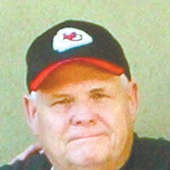A Different Ending
In the novel "Centennial," James Michener uses the character of an Arapaho Indian woman named Blue Leaf, to show the unique method the American Plains Indians practiced, for the end of life. It is so different from our culture and values, but it is far from being uncivilized.
Blue Leaf was the wife of a great Indian warrior named Lame Beaver. His bravery and wisdom had made him a legend both within his tribe and among his enemies.
Lame Beaver reached a point at a certain age, where he was beginning to lose his strength and health. Not wanting to experience a lingering type of decline to an unhealthy old age demise, Lame Beaver planed his own special warrior's death.
He makes a pledge that he would stake himself to a lance planted in the field of battle, and not retreat, no matter the outcome.
Lame Beaver and Blue Leaf know that this is going to be his last battle, and he is revered within his tribe for his decision.
The end for his widow Blue Leaf, is not quite so dramatic or heroic. In the Arapaho culture, the wife of a slain warrior is not allowed to keep her teepee or any possessions.
All the other women come and destroy the teepee, and take away anything of value.
By the laws of her tribe, she is not allowed to even stay inside any other teepee unless she has a son that will take her in. Instead, she is delegated to a miserable existence along the periphery of the village. She can only eat scraps that she has to fight the dogs for, and when it gets cold in the winter, if she is still alive, she freezes to death.
This practice sounds so foreign to us, and it goes against all the norms of our western civilization. For the Plains Indians of that time, it not only made sense, it was vital to their very survival.
The death rate among warriors was considerably greater than that among the female tribe members. The food supply and the amount of all other consumable items needed to sustain their very fragile way of life, limited the number of mouths they could feed. They did what they had to do, and in their minds, any other choice would have been insanity.
Recently I sat with a group of friends over dinner, and the conversation turned in a similar cultural direction. We began to discuss the many family and friends that we knew, who were now living in nursing homes or other care facilities. Some of the worst cases we agonized over, were those dear loved ones, who have Alzheimer's.
As we talked about this sinister disease, I realized that for my generation, this is becoming one of the most dreaded diseases of our time.
Dementia is growing vastly in all the civilized countries of the world. The irony of this is that our own modern medicine is in some ways at fault. In America our average lifespan has grown in a steady climb. In the past 170 years the average life expectancy has doubled from the mid 40s to the mid 80s.
Despite dramatic increases in other diseases like diabetes and cancer, the span just keeps getting higher. Modern medicine has found multitudes of treatments, that keep us alive longer.
There are of course any number of research studies being conducted to try and treat Alzheimer's and dementia, but their size and funding pale, in comparison to the trials that are designed to prolong life.
So that leaves our current society with some serious problems and questions to deal with. The "Baby Boomer" generation of which I am a member, is by far the largest single population segment in our country.
As a group, we are now entering on average, the last 20-30 percent of our lives. During these years we will face many health issues, and we will use up a vast amount of the country's wealth performing these treatments. Furthermore, my generation will also have a tremendous number of dementia patients. A number that will dwarf the current facility rolls.
If you haven't guessed where my thoughts are going, I would be surprised. The civilized world and our country cannot provide all of this care. There simply will not be enough resources or workers to take care of us.
At some point, we will have to begin to make some choices that may now seem to most of us unfathomable. Now I am not suggesting that we become like the Arapaho Indians, but I do think we need to start working towards some humane and sensible solutions.
Euthanasia is a word that makes most of us shudder at its mere mention. Yet, there is a growing number of people, who feel that there are times when a quiet, peaceful, and painless, end to life, might be desirable.
I'm not going to argue religious or ethical points here, but consider just a few circumstances, and see how you react to them. The first is a terminally ill cancer patient. There is no hope, and they are in terrible pain despite receiving massive pain medications. Should they be allowed to stop treatment, take a willing dose of morphine, and pass gently to sleep?
My second story would be about me. If I am diagnosed with Alzheimer's, and I reach the stage where I reside in nothing more than a vegetative state, should I have the same option, if I had made a living will stipulation or declaration beforehand?
These are just two of countless questions that we are all going to face in the next few years. They are compounded by the sheer size of our aging population. The questions and answers are up for debate, but for me, I'd prefer to have a "Blue Leaf" option!!!

